Microsoft Teams is coming to Linux
Microsoft is working to bring its Teams software to Linux. The company has said that it is "actively working" on creating a Linux version of the client, although there is no word on quite when it might be released.
There have long been calls for Microsoft to cater for Linux users. The collaborative Teams software is used by many people in mixed platform environments, and the announcement from Teams engineers have been greeted with enthusiasm.

Arch Linux-based Manjaro forms a company, but will it fail?
Some people may think a company focused on Linux can never be successful. That’s false thinking, actually. True, some people use Linux as just a hobby, but it is so much more than that. As Red Hat shows us, Linux can be a billion dollar business. Plus, System76, for example, has been selling personal computers running Linux for many years. So, yeah, a Linux-focused company can be a success.
Of course, that does not mean a Linux-focused company is guaranteed to be a success. Case in point, today, popular Linux distribution Manjaro announces that it has formed a limited partnership business entity. The question, however, is whether or not creating such a company is a good idea.

Debian-based MX Linux 19 Beta 2.1 now available for download
MX Linux is apparently becoming increasingly more popular these days, and I am not really sure why. Lately, I have been testing out the open source operating system, and I simply don't understand the hype.
Xfce, which MX uses, remains one of the worst desktop environment for end users -- it is lightweight, but that aside, it offers nothing over the superior GNOME or KDE. If you own a HiDPI monitor (which more and more people have), Xfce remains a terrible experience.
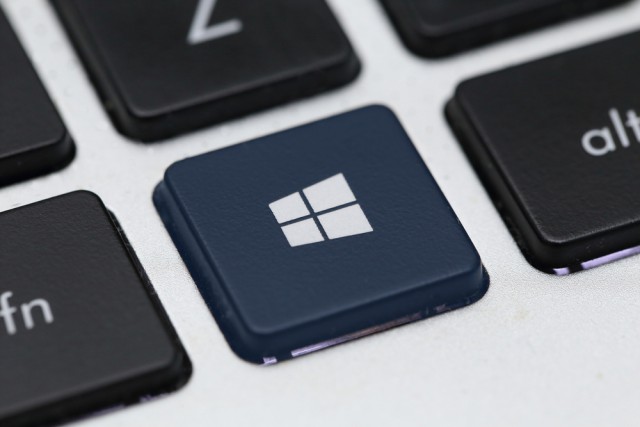
Microsoft releases Windows 10 20H1 Build 18975 with Cortana and Windows Subsystem for Linux (WSL) improvements
Work continues apace on the next major Windows 10 update due out next spring. Recent preview releases have all introduced big improvements, and today's new flight, Build 18975, is no different.
This release for Fast ring Insiders introduces the ability to move the Cortana window to anywhere on screen, and also makes improvements to Windows Subsystem for Linux (WSL).

Apple Music finally comes to Linux
Apple Music is the best streaming music service. Yes, it is better than Spotify. Apple's offering has a superior interface and better new music discovery. Hell, I recently discovered the best album of the year on Apple Music -- Blowing on a Marshmallow in Perpetuity by 0 Stars. Seriously, check it out, y'all.
Unfortunately, Apple Music doesn't work on traditional Linux distributions like Ubuntu or Fedora. It does, however, work on Windows, macOS, iOS, and Android. Chromebook users can take advantage of the Apple Music Android app from the Play Store. Traditional Linux users, however, are sadly left out of the party.

Open source Kodi 18.4 'Leia' now available for Windows, macOS, Linux, and more
Officially, Kodi is not for piracy, but the reality is... it sort of is. Look, not everyone uses the software for nefarious purposes, but let's be honest here, folks, in these days of inexpensive streaming media, people setting up a media center to access locally stored files are few and far between. So, yeah, Kodi is a platform used by many pirates.
Regardless of what you use Kodi for, you should be excited today. Why? Well, a new version of the open source software is now available for download. No, it is not a monumental release by any means -- Kodi 18.4 "Leia" is pretty much all about bug fixes. In fact, end users may not even notice any changes.
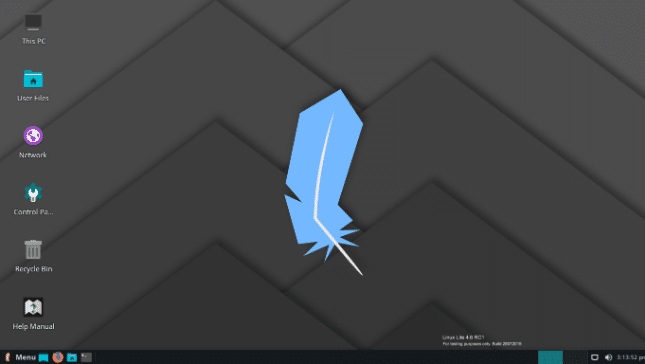
Ubuntu-based Linux Lite 4.6 now available
Happy Labor Day Weekend, dear BetaNews readers! Tomorrow, many of us "working stiffs" will get the opportunity to do nothing. We can sit around, watch TV, barbecue some meat -- hell, for one day, we can pretty much do whatever we'd like. Personally, I picked up some steaks from Costco, which are marinating now in anticipation. Sadly, not everyone will be off from work tomorrow, so if you will be at your job on Labor Day, please accept both my sympathies and respect.
If you want something fun to do tomorrow while relaxing at home, why not install Linux? Seriously, folks, what better time than Labor Day to look into replacing Windows 7 or Windows 10 on your PC with something better and faster? If your PC has been sluggish, or if you are wary of all the telemetry (spying) built into Windows 10, a distribution such as Linux Lite can breathe new life into your computer. Today, following a short beta period, Linux Lite 4.6 "Final" becomes available for download.
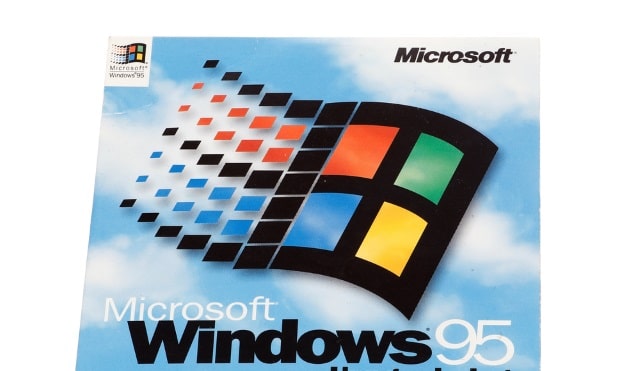
New version of Windows 95 gains a snazzy user interface on Windows 10, macOS and Linux
Windows 95 has been enjoying a nostalgia-fueled revival in recent years. There have been concepts made for modern versions of the ancient OS on desktop and mobile and it’s even now possible to give an Apple iPhone a Windows 95 makeover.
Last year, developer Felix Rieseberg released Windows 95 as an Electron app and a few months later updated it to run gaming classics like Doom. Three months ago he gave the OS a welcome performance boost, and now it gets a smart new user interface and upgraded components.

Open source champion Microsoft makes the Linux kernel better with exFAT
I'm someone who uses both a Linux-based operating system and Windows 10 daily. You'd think I constantly run into roadblocks when working between them, but really, that couldn't be further from the truth. Actually, much of the software I use on Linux is also on Windows, such as GIMP, Google Chrome, and LibreOffice. One area where I have faced difficulty over the years, however, is working with different file systems for external drives. It is a common problem.
Today, Microsoft announces it will make working between Linux and Windows 10 even easier. How, you ask? By publicly publishing the exFAT file system specification and hopefully paving the way for it to be included in the Linux kernel. In other words, if you have a memory card, flash drive, or other storage device formatted in exFAT, you will eventually be able to access it on Linux right "out of the box" -- no need to install additional packages. I suppose you could say, Microsoft is essentially improving the Linux kernel! This should come as no surprise, as the Windows-maker has transformed itself into an open source champion these days.

MX Linux 19 Beta 1 is here -- download the Debian-based operating system now
Another day, another Linux distribution. Yeah, it can get a bit tedious reading about so many operating systems based on the open source kernel, so here at BetaNews we typically try to inform you about the better ones. You see, there are many garbage Linux distributions that can simply be ignored -- they are either low-quality or overly redundant. Ultimately, it all becomes noise, harming the Linux community overall. Yes, having too much choice can be a negative.
Today, a wildly popular operating system achieves Beta status, and you should be interested -- it is worth your attention. Called "MX Linux," it has quietly gained a fairly large following, topping the charts at the legendary DistroWatch. MX Linux 19 Beta 1 is based on Debian 10 Buster and features the recently released Xfce 4.14 desktop environment. So, yeah, this is fairly bleeding edge stuff, although the Linux kernel is only at 4.19.5.
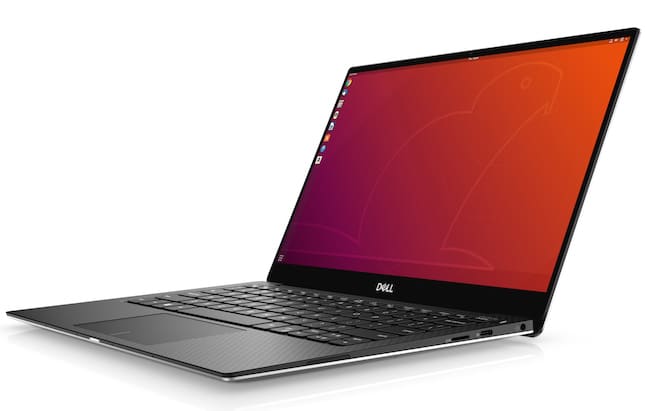
Dell XPS 13 (7390) Developer Edition laptop comes with Ubuntu Linux, Wi-Fi 6, and 10th Gen Intel Core CPU
There are so many great Linux distributions these days, such as Netrunner, Deepin, and Zorin OS to name just a few. With that said, Ubuntu remains a great option for many. Since Canonical switched from Unity to GNOME, Ubuntu has been better than ever.
If you want a computer pre-loaded with Ubuntu, I highly recommend you check out System76's new Adder WS -- it looks to be a beast. If you want a laptop that it thinner and lighter, however, Dell's XPS 13 Developer Edition notebooks are definitely worth your attention. They have historically been very well-received by consumers, and no, they aren't just for developers. Today, Dell unveils the latest XPS 13 Developer Edition, and it is chock full of modern hardware.

Debian Buster-based Netrunner 19.08 'Indigo' KDE-focused Linux distro is the perfect Windows replacement
GNOME is undeniably the best desktop environment, but understandably, not everyone likes it. Hey, that's OK. Some folks like Pepsi despite Coke being, like, 1,000 times better. Such is life. Thankfully, with Linux, there are plenty of environments from which to choose, such as Xfce, Cinnamon, and KDE to name a few.
If you are a fan of KDE, or interested in sampling it for the first time, Netrunner is a Linux-based operating system you have to try. Quite frankly, this distro offers the greatest implementation of KDE Plasma. But that's not all -- it is one of the best Linux distros overall. It is chock full of useful software and is extremely polished, making it a great choice for those switching from Windows, but also, it is a solid choice for Linux experts. Today, Netrunner 19.08 "Indigo" becomes available for download.
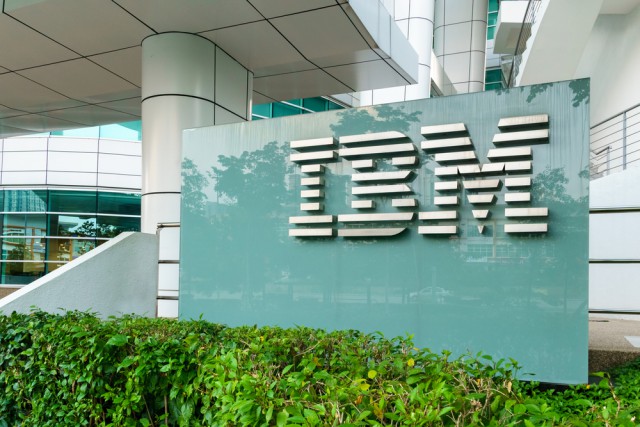
IBM extends its commitment to open hardware
IBM has used the Linux Foundation Open Source Summit today to announce that it will contribute key technologies to the open community.
The company is opening up the POWER Instruction Set Architecture (ISA), the definitions developers use for ensuring that hardware and software work together on POWER.

Linux Journal shuts down, because cheapskate Linux users don't spend money
Linux users are cheap as hell. Sorry, but it is largely the truth. I am not just talking about traditional Linux desktop users either, but Android users too. This is why iOS is so profitable despite its paltry market share compared to Android. iPhone users will actually buy apps, while Android users would rather look at ads than part with a measly dollar. Sadly, many people only choose Linux because it is free -- not because they prefer it.
And look, that's fine. There's nothing really wrong with being averse to spending money. Quite frankly, not wasting money is a noble trait. However, like it or not, there is no such thing as a free lunch, and that includes open source software. Eventually, when developers can't pay their bills, that free software you love will disappear.

Linux is rubbish when RAM runs low
A developer has pointed out what many people have been complaining about for some time: Linux is terrible when memory runs low.
Writing in a message to the Linux kernel mailing list, developer Artem S Tashkinov says that the problem has been "bugging people for many years" and is still present in version 5.2.6 of the Linux kernel. He says that non-technically minded users could be prompted to ditch Linux-based OSes if they encounter the issue which he points out is "is reproducible in less than a few minutes under the latest and greatest kernel".
